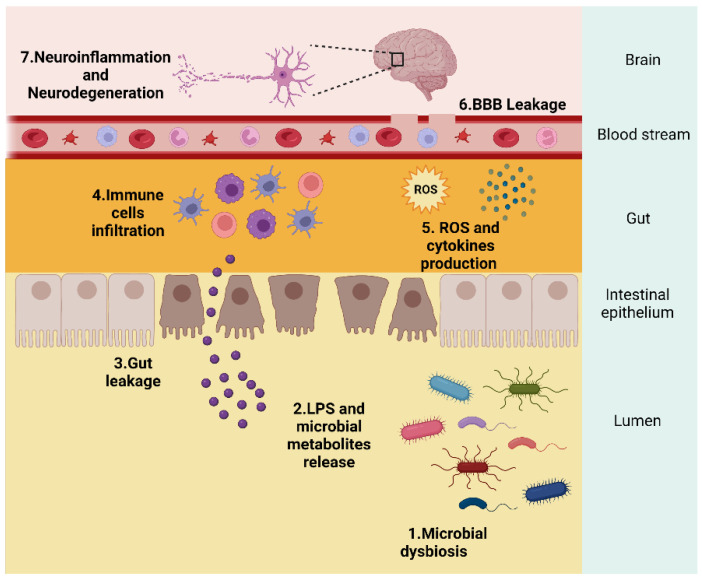Figure 1.
Signalling mechanisms between gut microbiota and the brain. Gut microbiota dysbiosis (1) results in increased LPS and microbial metabolites in the lumen (2) that are released from bacteria which damages intestinal epithelial cells culminating in gut leakage (3). This increase in the gut barrier permeability prompts immune cells infiltration (4) that can also release ROS leading to exaggerated oxidative stress and liberate cytokines that circulate from the blood to the brain (5). This systemic inflammation and ROS overproduction may in turn impair the blood–brain barrier (6) and promote neuroinflammation culminating in neurodegeneration (7). Created by Biorender.

